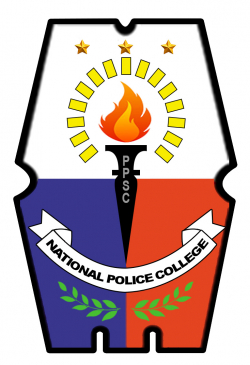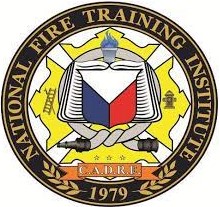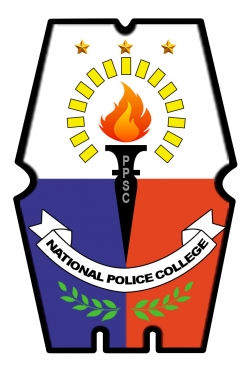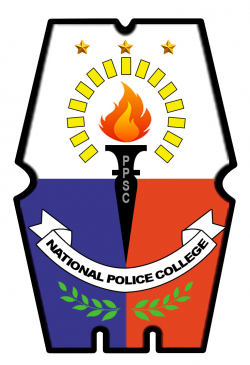ASSESSMENT OF THERAPEUTIC COMMUNITY MODALITY PROGRAM USING KRAIGER’S DECISION-BASED EVALUATION: BASIS FOR TCMP MANUAL ENHANCEMENT

Type
Thesis
Category
PSOSEC
[ Browse Items ]
Publication Year
2018
Abstract
This manuscript is entitled “ASSESSMENT OF THERAPEUTIC COMMUNITY
MODALITY PROGRAM USING KRAIGER’S DECISION-BASED EVALUATION: BASIS FOR TCMP MANUAL ENHANCEMENT.”
The study sought answers to the following questions: How do the respondents evaluate the Therapeutic Community Modality Program at General Santos City Jail-Female Dormitory using Kraiger’s Decision-Based Evaluation and what are the problems encountered that affect the effective implementation of TCMP at General Santos City Jail – Female Dormitory relative to the following variables: Training Content and Delivery (Program’s Objectives, Program’s Components, Personnel Mobilization, and Program’s Resources), Changes in Learner’s (Behavioral Management, Emotional and Psychological Aspects, Intellectual and Spiritual Aspects, Vocational and Survival Aspects, and Organizational Payoffs (Organizational Output and Outcome).
This study utilized the descriptive method of research employing both qualitative and quantitative approaches. With the use of probability in determining the respondents, a total of 196 respondents were taken, to wit: 14 BJMP Personnel, 13 Service Providers, and 169 Inmates. In the furtherance of the study, the researcher utilized the following tools of analysis: Self-formulated Survey Questionnaire, Focus Group Discussion, and Key Infortrmant Interview.
From the findings of the study, the following conclusions were drawn: On training Content and Delivery, both Program’s Objectives and Program’s Components were significantly highlighted by the respondents. However, on matters pertaining to “Changes in Learners”, the respondents emphasized the importance of intellectual and spiritual development in the implementation of TCMP. The “organizational payoffs” considered the implementation of TCMP as avenue or opportunities of learning and respect in the community.
The respondents under Training Content and Delivery, assessed “Personnel Mobilization” as the most common problem encountered in the implementation of TCMP. The problems encountered, as regard to “Changes in Learners”, also emphasized the aspect of Behavioral Management. On the other hand, the problems encountered on the “Organizational Payoffs” clearly and directly considered the organizational outcome of the TCMP. Overall, the assessment on the three variables was moderately effective.
The test of significant difference showed that on “Training Content and Delivery” both program’s objectives and program’s resources displayed the computed F-value higher than the critical value and showing significant difference in the assessment of the respondents and rejected the nullhypothesis. While the program’s component and personnel mobilization, whose computed F-value is lower than the critical value, presented that there are no significant differences in the assessments of the three groups of respondents and thus accepted the null hypothesis.
The “Changes in Learners” revealed that both behavioral management and emotional and psychological aspects rejected its null hypothesis and thereby showing significant difference in the assessments on the implementation of TCMP at General Santos City Jail-Female Dormitory. However, the intellectual and spiritual aspects accepted the null hypothesis and thus showing no significant difference in the assessments of the three groups of respondents.
Lastly, the organizational payoffs emphasized both variables with higher and lower computed F-value than the critical value. Organizational Output rejected the null hypothesis and showing significant difference in the assessments, while the Organizational Outcome accepted the null hypothesis and revealing no significant difference in the assessment of the respondents.
Further, the researchers recommend the following: the TCMP, should be properly planned (enhanced policy manual), budgeted (included in the Operation Plan and Budget) and supervised (closed supervision and monitoring) by the higher management; the TCMP must encourage values formation seminars and retreats; to amend and revise the current TCMP Manual to help TC instructors and implementers achieve ideal platform; to develop an Evaluation Tool or Survey Form; includes an aftercare program; recommend the hiring of medical professionals; and, the proposed action plan must be submitted to the BJMP Command Group for its approval during the 2nd quarter of 2018 (and/or onward). Indeed, it is high-time for the organization to deliver quality and ideal services to its clientele. The enhancement of the TCMP Manual should be considered on this aspect at the outset.
MODALITY PROGRAM USING KRAIGER’S DECISION-BASED EVALUATION: BASIS FOR TCMP MANUAL ENHANCEMENT.”
The study sought answers to the following questions: How do the respondents evaluate the Therapeutic Community Modality Program at General Santos City Jail-Female Dormitory using Kraiger’s Decision-Based Evaluation and what are the problems encountered that affect the effective implementation of TCMP at General Santos City Jail – Female Dormitory relative to the following variables: Training Content and Delivery (Program’s Objectives, Program’s Components, Personnel Mobilization, and Program’s Resources), Changes in Learner’s (Behavioral Management, Emotional and Psychological Aspects, Intellectual and Spiritual Aspects, Vocational and Survival Aspects, and Organizational Payoffs (Organizational Output and Outcome).
This study utilized the descriptive method of research employing both qualitative and quantitative approaches. With the use of probability in determining the respondents, a total of 196 respondents were taken, to wit: 14 BJMP Personnel, 13 Service Providers, and 169 Inmates. In the furtherance of the study, the researcher utilized the following tools of analysis: Self-formulated Survey Questionnaire, Focus Group Discussion, and Key Infortrmant Interview.
From the findings of the study, the following conclusions were drawn: On training Content and Delivery, both Program’s Objectives and Program’s Components were significantly highlighted by the respondents. However, on matters pertaining to “Changes in Learners”, the respondents emphasized the importance of intellectual and spiritual development in the implementation of TCMP. The “organizational payoffs” considered the implementation of TCMP as avenue or opportunities of learning and respect in the community.
The respondents under Training Content and Delivery, assessed “Personnel Mobilization” as the most common problem encountered in the implementation of TCMP. The problems encountered, as regard to “Changes in Learners”, also emphasized the aspect of Behavioral Management. On the other hand, the problems encountered on the “Organizational Payoffs” clearly and directly considered the organizational outcome of the TCMP. Overall, the assessment on the three variables was moderately effective.
The test of significant difference showed that on “Training Content and Delivery” both program’s objectives and program’s resources displayed the computed F-value higher than the critical value and showing significant difference in the assessment of the respondents and rejected the nullhypothesis. While the program’s component and personnel mobilization, whose computed F-value is lower than the critical value, presented that there are no significant differences in the assessments of the three groups of respondents and thus accepted the null hypothesis.
The “Changes in Learners” revealed that both behavioral management and emotional and psychological aspects rejected its null hypothesis and thereby showing significant difference in the assessments on the implementation of TCMP at General Santos City Jail-Female Dormitory. However, the intellectual and spiritual aspects accepted the null hypothesis and thus showing no significant difference in the assessments of the three groups of respondents.
Lastly, the organizational payoffs emphasized both variables with higher and lower computed F-value than the critical value. Organizational Output rejected the null hypothesis and showing significant difference in the assessments, while the Organizational Outcome accepted the null hypothesis and revealing no significant difference in the assessment of the respondents.
Further, the researchers recommend the following: the TCMP, should be properly planned (enhanced policy manual), budgeted (included in the Operation Plan and Budget) and supervised (closed supervision and monitoring) by the higher management; the TCMP must encourage values formation seminars and retreats; to amend and revise the current TCMP Manual to help TC instructors and implementers achieve ideal platform; to develop an Evaluation Tool or Survey Form; includes an aftercare program; recommend the hiring of medical professionals; and, the proposed action plan must be submitted to the BJMP Command Group for its approval during the 2nd quarter of 2018 (and/or onward). Indeed, it is high-time for the organization to deliver quality and ideal services to its clientele. The enhancement of the TCMP Manual should be considered on this aspect at the outset.
Number of Copies
1
| Library | Accession No | Call No | Copy No | Edition | Location | Availability |
|---|---|---|---|---|---|---|
| NPC Library | 676085 | 1 | Yes |




